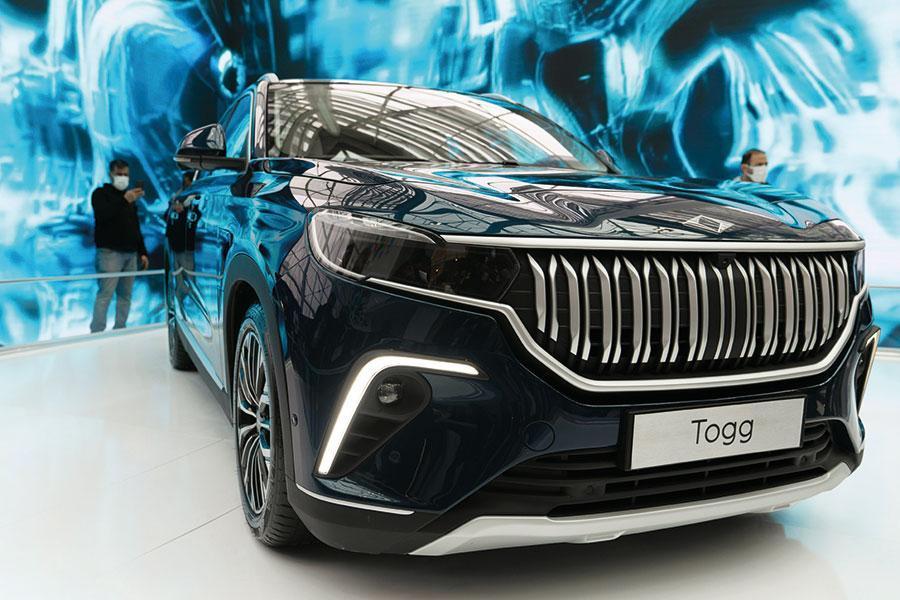
The most important development for the Turkish automotive industry this year will be the introduction of the homemade electric vehicle Togg to the local market.
Togg’s C-SUV model cars will start to be delivered to their owners in March, while the company will start collecting pre-orders in February.
Including new models to be introduced by other carmakers, EV sales in Türkiye are expected to reach 40,000 units in 2023, which means the share of EVs in total vehicle sales will climb to 7 percent.
The number of charging stations across the country will surpass 12,000, according to estimates by the Electric and Hybrid Vehicles Association (TEHAD).
From January to November 2022, a total of 6,124 electric vehicles were sold in Türkiye, marking a 157 percent increase from the same period of 2021, the latest data from the Automotive Distributors’ and Mobility Association (ODMD).
The share of EV sales in total vehicle sales was only 1.2 percent in the first 11 months of the year. Hybrid car sales grew by 14 percent on an annual basis during the same period to more than 51,000 units, capturing 10.2 percent in total sales.
Total vehicle and EV sales are expected to be around 780,000-800,000 and 8,000, respectively, in 2022.
In the first 11 months of 2022, Türkiye’s automotive market contracted by 1 percent from the same period of the previous year.
Some 668,000 passenger cars and light commercial vehicles were sold on the local market in January-November.
The sales of passenger cars declined by 2.4 percent to 505,886, while light commercial sales grew 3.4 percent annually to 162,177 units.
Meanwhile, carmakers Renault and Tofaş, which have production facilities in the province of Bursa, will unveil their strategic plans in the first quarter of 2023.
Chery, one of China’s largest carmakers, has announced that it will reenter the Turkish market this year.
The company will offer three different models to Turkish consumers in the first half of 2023, said Fenghuo Si, the president of Chery Türkiye.
In 2009, the Chinese company entered the Turkish market via a local distributor but faced some problems. Now, the company is returning to the market after five years. This time it plans to market its cars directly not through a local distributor.
The chip shortage is expected to continue to affect carmakers in Türkiye in 2023, which will cause availability problems and delays in delivering cars on time to consumers, at least in the first half of this year.
The increase in the prices of new cars is likely to remain in the new year due to the elevated raw material costs, global inflation, and post-pandemic-related issues. New car prices rose 60 percent last year. Foreign exchange rates, local inflation, and special consumption tax rates will determine the prices of cars in Türkiye.
Another lasting problem in 2023 will be difficulties regarding consumers’ access to financing.